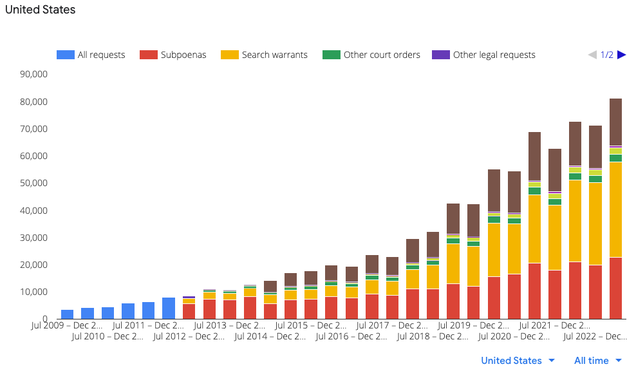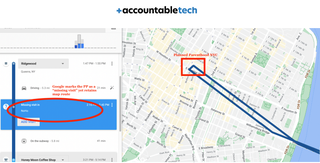Google pledged to stop tracking user visits to abortion clinics shortly after Roe v. Wade was overturned in June 2022, which killed off the United States’ largest federal abortion protection. The measure aimed to protect abortion seekers from prosecutors, especially in the 14 states where abortion is now banned. Roughly 18 months later, Google has not followed through on its promise, according to a new study from Accountable Tech, and the company still tracks visits to abortion clinics.
Google’s location data is one of law enforcement’s favorite tools in the United States. The U.S. government requested the company’s data over 63,000 times in the first half of 2023, reaching an all-time high, and Google handed over data 85% of the time. That’s why the company’s tracking of visits to abortion clinics is a big deal, and why its promise to stop was so celebrated. However, a new study published on Thursday ran tests in seven states across the country and found that Google is still collecting Location History data for visits to abortion clinics, despite their promise. Accountable Tech says “this report makes it clear that Google cannot be trusted to follow-through on its privacy promises.”

The study ran experiments in Pennsylvania, Texas, Nevada, Florida, New York, Georgia, and North Carolina. In 50% of its tests, Accountable Tech found that routes to and from Planned Parenthood locations were saved in Google’s Location History. The actual name, Planned Parenthood, was scrubbed from Google’s data, which mirrors Accountable Tech’s study from a year ago, but the data still clearly points to abortion clinic visits.

Google announced last December it would no longer hold onto people’s location data – which would mean it can’t turn that information over to the police. Accountable Tech says this was a positive development, but that Google can’t be trusted at face value on promises like this. The company received 5,764 “geofence warrants” in states where abortion is banned between 2018 and 2020, according to Politico.
Google did not immediately respond to Gizmodo’s request for comment.
Google notes that its Location History feature is default turned off, and you can turn it on if you choose. It’s unclear how many users Google tracks location data on, but it’s estimated the company is one of the world’s largest data trackers, with over a billion users of Google Maps globally.
